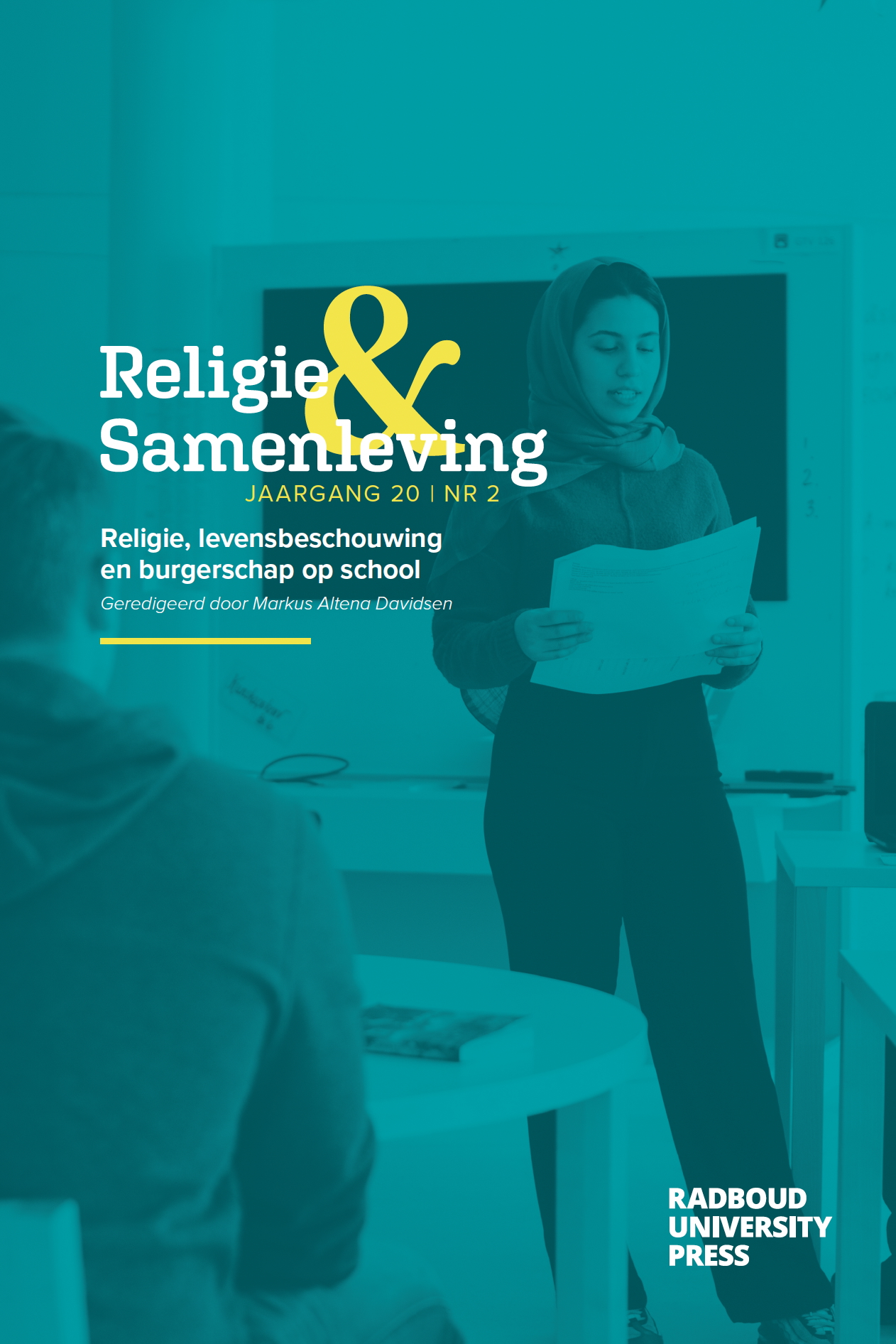Naar een machtssensitieve benadering van levensbeschouwelijke diversiteit in het onderwijs
DOI:
https://doi.org/10.54195/RS.22653Trefwoorden:
power-sensitive approach, interfaith diversity, education, prayer ban, interfaith dialogue, critical pedagogy, transformative citizenship, citizenship education, neutrality, Christian privilegeSamenvatting
This article proposes a power-sensitive approach to religious diversity in Dutch education, where two approaches seem to prevail: exclusive and inclusive neutrality. Both approaches implicitly uphold Christian dominance and privilege, even in a post-Christian context. This is illustrated by schools enforcing a prayer ban on pupils and staff while allowing forms of prayer that resemble (liberal Protestant) Christian prayers. A brief historical analysis shows how this (post-)Christian norm developed and persists today in the Netherlands. This article explores an alternative critical, power-sensitive approach that strives for genuine equality and interreligious solidarity, while addressing structural inequalities. By exploring the intersections between critical pedagogy, religious/worldviews education, and citizenship education, the article proposes a more inclusive framework than inclusive neutrality: a transformative or critical inclusivity that is power-sensitive and justice-oriented.
Downloads
Downloads
Gepubliceerd
Nummer
Sectie
Licentie
Copyright (c) 2025 Kamel Essabane, Hannah J. Visser, Janneke Stegeman

Dit werk wordt verdeeld onder een Naamsvermelding 4.0 Internationaal licentie.



